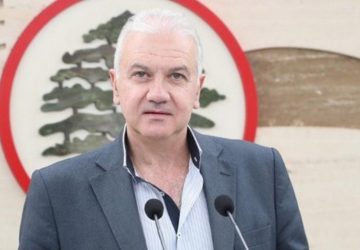Listen to the article
Discussions among Christian factions in Bkerke are making headway toward a national framework addressing Lebanon’s core issues. At the forefront are matters such as state-building, institutional integrity, disarmament and the delegation of war and peace decisions. The forthcoming period is expected to witness intensified meetings aimed at finalizing this document, which will then be presented to other Lebanese stakeholders for potential endorsement.
Information suggests that progress made during the recent meeting in Bkerke between the Lebanese Forces (LF), the Free Patriotic Movement (FPM), the Kataeb Party, the Independence Movement and Project Watan (led by MP Nehmat Frem) indicates a narrowing of the political gap, mainly with the FPM, regarding Hezbollah’s arms, its characterization and ending all reference regarding its legitimacy. Moreover, it emphasizes that Lebanon’s challenges extend beyond the Christian community and involve all Lebanese factions committed to nation-building. This cannot be achieved solely through the pursuit of positions here and there, although such aspirations are within the rights of Christians. The current priority lies in electing a president and reclaiming hijacked decision-making powers.
Despite these recent developments, monitoring sources cautioned against excessive optimism, stating that reaching a national document, if achieved, is not the ultimate goal. Rather, the challenge lies in how to implement and adhere clearly to the contents of this document. The sources added that the participating parties in the Bkerke meetings are expected to reconvene after the Easter that abides by the Western calendar. This next meeting will see further discussions and proposals related to national issues.
Patriarch Bechara Rai, alongside other attending bishops, is advocating for a swift agreement among Christians, urging the inclusion of additional Christian groups, notably the Marada Movement. Rai and the relevant bishops are committed to pressing forward in this direction and raising their voices to push Parliament to convene and elect a president without delay. Additionally, they seek to express a unified stance against war in southern Lebanon, presenting it as a shared national position.
Information indicates that the bishops taking part in the meeting are urgently engaging with political forces to reach an agreement, emphasizing that failure to do so will lead to further deterioration on both the Christian and national fronts. In this context, it has been noted that the LF remain wary of the FPM’s stance on Hezbollah’s arms, especially its shifting characterization. At times, it is deemed legitimate, while at others, it is labeled as resistance weaponry or a strategic political card. The LF has called on the FPM to clarify its position on these arms, which they see as illegitimate and dragging Lebanon into wars and conflicts, a sentiment echoed by the Maronite Patriarch.





